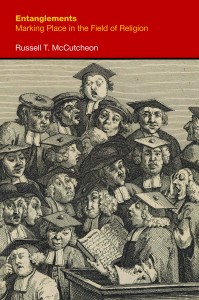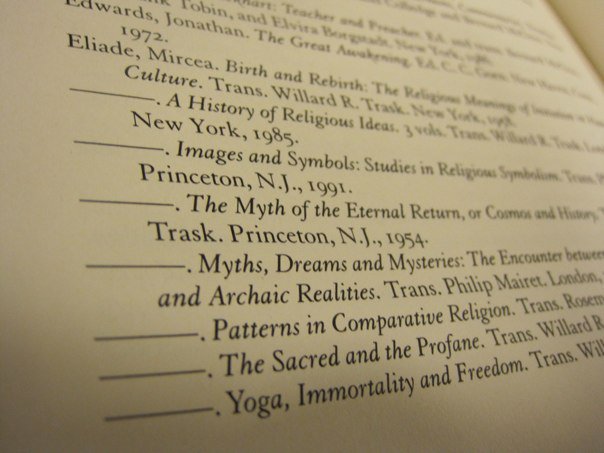 I’ve recently written some posts, e.g., here, and here, along with an essay or two about the troubles I have with scholars who now study this thing they call material religion; my difficulty is the philosophically idealist stance that yet persists despite their supposed focus upon the empirical, the tangible. For, sooner or later, the other shoe will drop and you’ll see that the artifact they’re quite literally saying they’re looking at and touching or hearing, maybe even sniffing or tasting, is assumed by them to “embody” or “manifest” some prior, ahistorical, and thus ethereal thing; sure, they might no longer call it “the sacred” but you’ll usually find it called “meaning” instead; their work makes it plain that if it is studied at this one empirical site carefully enough then you’ll be able to infer things about it that transcend that particular instantiation.
I’ve recently written some posts, e.g., here, and here, along with an essay or two about the troubles I have with scholars who now study this thing they call material religion; my difficulty is the philosophically idealist stance that yet persists despite their supposed focus upon the empirical, the tangible. For, sooner or later, the other shoe will drop and you’ll see that the artifact they’re quite literally saying they’re looking at and touching or hearing, maybe even sniffing or tasting, is assumed by them to “embody” or “manifest” some prior, ahistorical, and thus ethereal thing; sure, they might no longer call it “the sacred” but you’ll usually find it called “meaning” instead; their work makes it plain that if it is studied at this one empirical site carefully enough then you’ll be able to infer things about it that transcend that particular instantiation.
Just as something is claimed to be “an example of French culture,” for instance. Continue reading “Immaterial Culture?”


 There’s been lots of buzz, over the past decade or so, about material religion or embodied religion, as if this apparent emphasis on the empirical, the contingent, the historical, somehow gets us out of what many now see as the old rut of studying disembodied beliefs alone.
There’s been lots of buzz, over the past decade or so, about material religion or embodied religion, as if this apparent emphasis on the empirical, the contingent, the historical, somehow gets us out of what many now see as the old rut of studying disembodied beliefs alone.